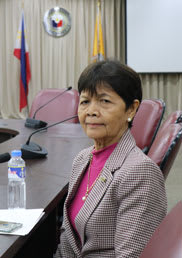Using evidence to inform short- and long-term responses to COVID-19 and conflict
How COVID-19 affects and creates conflict dynamics will differ within diverse contexts and lasting impacts will vary across countries and communities.

The influence of COVID-19 on conflict dynamics will depend both on what existed before and how those in power develop and deliver pandemic responses. While certain impacts will be visible immediately, many will take time to become apparent, with the prospect of long-term social, economic and political consequences likely.
Peacebuilders can provide context-specific nuance to support short- and long-term responses to COVID-19 through conflict analysis and access to local networks, ensuring delivery is inclusive, effective and peace-supporting.
This work in action
Conflict alert and critical events monitoring system in the Philippines
Our Philippines team has expanded its sub-national monitoring system to include impacts of pandemic responses on conflict dynamics and produced maps and reports for local authorities and donors to inform conflict-sensitive pandemic responses.
The data has helped to shape country strategies and nuance local government responses, contributing to the security of local communities. The monitoring system highlighted cases of culturally insensitive government responses.
Our advocacy around these issues influenced a national directive to uphold Muslim burial practices during COVID-19, helping to ensure equal respect for marginalised populations and preserve religious traditions.
Other ways to build positive peace in pandemic responses
This is just one of the ways to build positive peace in pandemic responses. You can read the other ways below.
Countering divisive narratives and building bridges across divides
(Re)building trust and accountability between citizens and states
Reducing gender inequalities through responding to COVID-19 and its impacts




